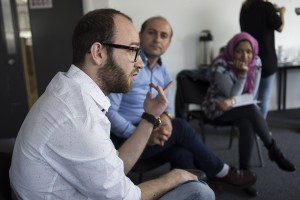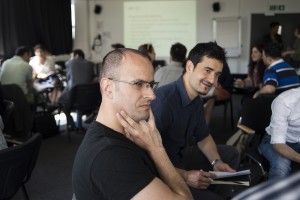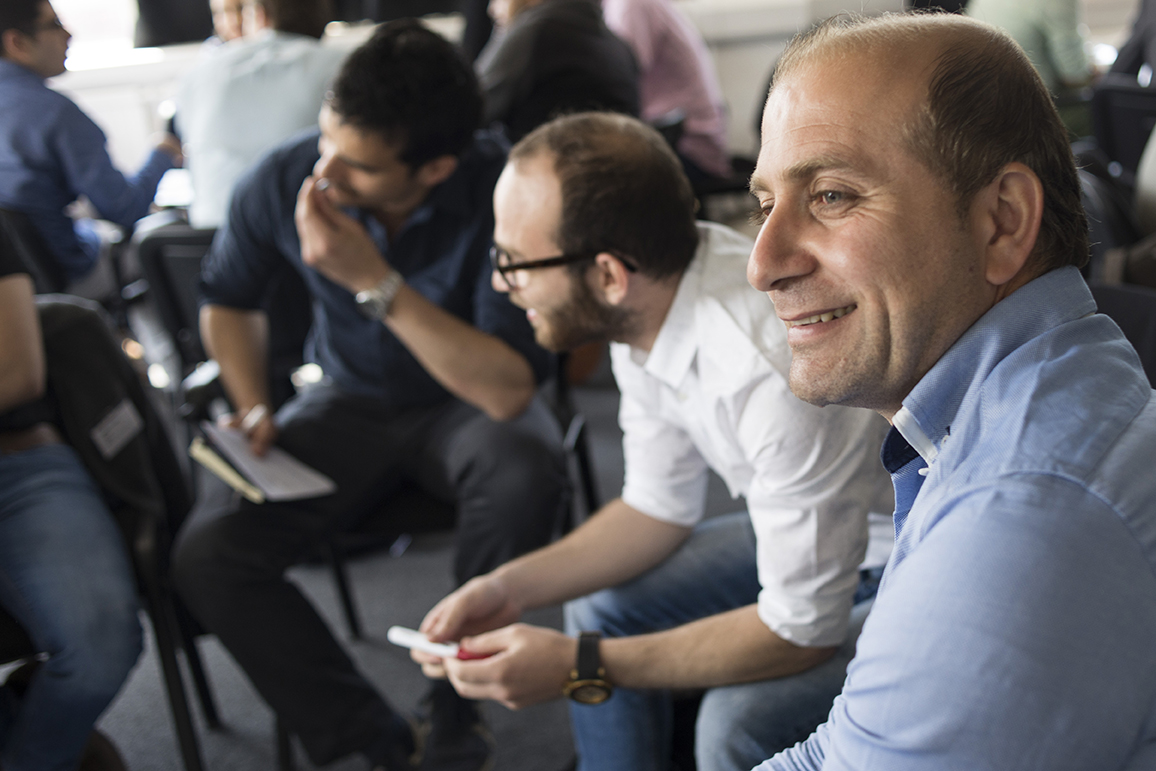This summer, journalist Neil Arun conducted two workshops at the London College of Communications, and shared some of the things he knew with journalists who had arrived in Britain as refugees. They, in turn, demonstrated what they knew – and what they could bring to journalism in Britain.
The workshop’s participants had come from places such as Syria, Iraq, Iran and Afghanistan. Having fled the hazards that stalk journalists in those countries, they were now trying to rebuild their careers in a new culture.

We began by going over the basics of our trade. What makes for a great piece of reporting? What habits of mind must a good journalist cultivate? How does an idea for a story become a successful pitch?
The best reporting, we agreed, displayed certain fundamental qualities. Honesty, curiosity, tenacity, a reverence for facts, and an instinctive bond, a kind of empathy, with its audience.
As the workshops progressed, subtle differences emerged – reminders that if journalism were a common language, we spoke in distinct dialects, each with its own emphases.
Notions of objectivity and balance, contested enough in the British press, were fiercely debated. But an argument heard less often in British newsrooms – that journalism should have a clear moral purpose – resonated among these refugee journalists who knew first hand just how costly their work could be. Journalism, they insisted, must be a force for good. How will they define that good? I hope to find out soon, from their stories for the Refugee Journalism project.
The need for their contribution has never been greater. Our first workshop took place just after the Brexit vote. The “Leave” campaign had succeeded, in part, by linking membership of the European Union to fears about unchecked immigration. It was aided by a right-wing press that produced sensational reports, some demonstrably false, portraying a Britain on the verge of being overrun by unwanted foreigners. The referendum result showed how these stories about migration did not merely attract clicks and shift newspapers – they could also shape history.

The coverage is not always unfavourable. More than a million people travelled to Europe illegally last year, risking death to cross the Mediterranean. At the height of this humanitarian crisis, the press was saturated with agonising tales of separation and suffering. Governments were spurred into action. Money was promised, measures agreed. And yet today there is barely any news of all those people who were swept onto Europe’s beaches and front pages last summer.
It seems as if our media outlets must either portray the story of migration in the language of victimhood, as many did last summer – or villainy, as some did around the Brexit vote. These portrayals may not be entirely accurate, but they are effective. They can influence policy and public opinion, as both Brexit and the 2015 migration crisis have demonstrated.
At a time when the British press has a ready use for stories about refugees, it has yet to make space for stories by them. This, I believe, is partly why the image of the refugee swings between stereotypes of villains and victims. It has acquired a power in the media that is in stark contrast to the power of refugees within the media.
The story by the refugee journalist needs to be heard – not just for its own sake but to address the imbalance in our coverage of a complex issue.
